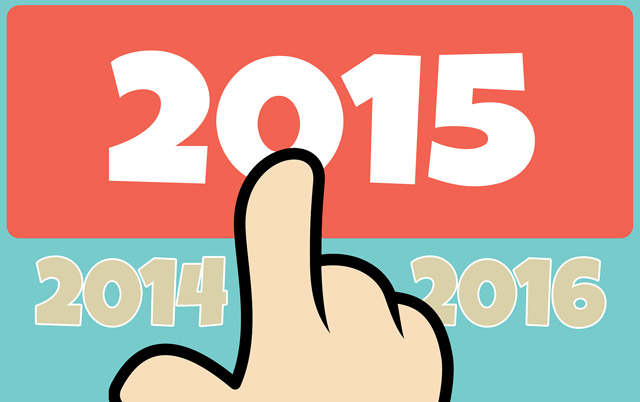
People of the western world have been making resolutions for the New Year for over 4 000 years. The Babylonians, along with the Romans who later developed the idea further, made resolutions in the hope of favourable returns from the gods.
In the current day, self-interest has become disintermediated from others and we now make resolutions that are largely about self-control and self-improvement, with the occasional thought given to being a nicer person to others.
Although there seems to be some evidence that making resolutions for a new year works better than doing it at another time, Harvard psychologist and associate professor Amy Cuddy points out how bad we are at setting effective and achievable goals. And then of course, even when we do make resolutions, most of us give those up very quickly.
A different approach, however, is to use the new year to undertake specific one-off tasks that at worst will have a lasting benefit and at best may initiate better behaviours.
Among the resolutions people make at New Year, technologically based ones would normally not be at the top of many people’s lists. This is possibly surprising given the central role that technology plays in our lives and the potentially immediate and devastating effect the failure of even personal technology can have. From the simple losing of information through failure to keep backups through to loss of our entire identity through its theft and subsequent misuse, problems that could be simply avoided can have major consequences. That is not to say that losing weight and exercising more is not important, but having good “technological hygiene” practices are important.
So, here are three things that all of us should be doing in the New Year.
Tidy up and renew your passwords
Hundreds of millions of passwords are stolen every year. These are mainly stolen from hacked websites or from trojans on a compromised user machine. Having an account compromised is bad enough, but the problem is magnified if the stolen password is the same one that is used for all of the user’s other accounts.
Even if you are using different passwords for different accounts, it is a good idea to change them periodically. When you do, you can take the opportunity to follow a few best practices and even start using a password manager.
Briefly, the rules of good passwords are:
- Use a combination of words, numbers, symbols, and both uppercase and lowercase letters.
- Make the password at least eight to 10 characters long, but the longer the better. Remember that if you have password software to remember it for you, you can make the password as long as the site accepts. Avoid using common words as part of the password.
- One suggestion that combines changing passwords with other resolutions you may make for New Year, is to set your password to something that will remind you of the resolutions you have made, like “Bn1ce2people”.
Unclutter your digital life
Dealing with e-mail and general information overload may be a feature of life these days, but a lot can be done by unsubscribing from unnecessary notifications and even entire services. Unsubscribing to third-party e-mails is usually just a question of clicking the unsubscribe link at the bottom of the e-mail. For notification e-mails from social networks like Facebook and Twitter, it is “easier” to configure your e-mail notifications in the settings.
For Twitter, you can switch off all e-mail notifications at https://twitter.com/settings/notifications.
For Facebook, you can control most e-mail notifications by going to https://www.facebook.com/settings?tab=notifications§ion=through_email&view.
Lock down your digital world
This is the time to make sure that your mobile devices and computers are up to date with the latest software and that you have antivirus software installed on your PC or Mac. Often forgotten is the software that runs on wireless routers and modems which is notoriously vulnerable to attacks and compromise. Apple’s products are relatively easy to update using the AirPort Utility, but other manufacturers have their own interfaces.
The most common problem with security, however, is one that is “between chair and keyboard” — people themselves. This is especially true when it comes to clicking on links in e-mails that download unwanted software or take you to fake sites that attempt to steal usernames and passwords. It is always worth checking links before clicking to see if they are legitimate. For example, an e-mail that says it is from Telkom (or any other legitimate company), will not have links that start with http://dpalbums.lv — in Telkom’s case, it would be telkom.co.za.
There are a number of other tech resolutions you could make in addition to these: recycling old technology, making sure your devices and computers are backed up and even just taking regular time-outs from using technology. Whatever you end up doing, though, they will set you up for the rest of the year and hopefully keep you calmer and safer.![]()
- David Glance is director of the UWA Centre for Software Practice at the University of Western Australia
- This article was originally published on The Conversation.

